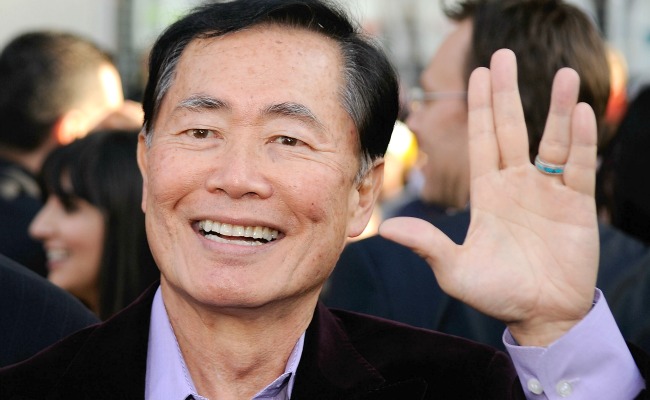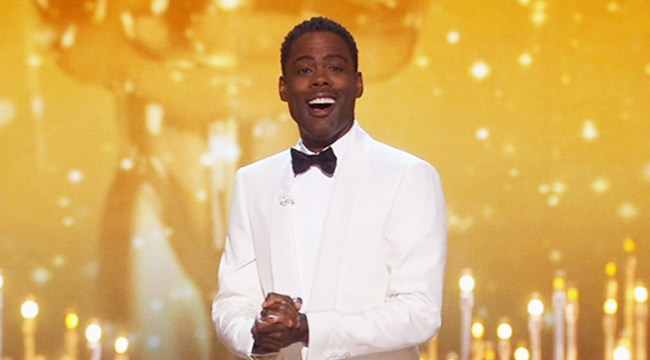In the past few years, Hollywood has gotten some well-deserved backlash over how it’s treated its minority members. With campaigns like #OscarsSoWhite, people are discussing important issues like the lack of diversity in front of and behind the camera. That’s definitely a good thing. It’s also good that these conversations not only focus on including black and Latino people in Hollywood, but Asian Americans as well.
The lack of roles for Asian American actors, as well as the lack of roles that aren’t stereotypes, has gotten a lot of attention recently due to Twitter hashtag campaigns like #StarringJohnCho, and the vocal internet backlash over the casting of white actresses to play characters who were originally Asian in Doctor Strange and Ghost in the Shell. Recently, the New York Times published a feature that focused on this activism, and how Asian American actors like Aziz Ansari and Constance Wu have been speaking up about the lack of opportunity for people who look like them in front of the camera. These issues, of course, aren’t anything new, nor is the activism against them. Here are some of the major touchstones informing the debate about how Asian actors are treated in Hollywood.
Breakfast At Tiffany’s and Sixteen Candles
Two of the most famous examples of racism against Asians in movies come from a pair of films that are still beloved and watched today. Directed by Blake Edwards from a short novel by Truman Capote, Breakfast at Tiffany’s came out in 1961 and became a hit in large part thanks to Audrey Hepburn’s portrayal of the seemingly carefree society girl Holly Golightly. The film also features the decidedly non-Asian actor Mickey Rooney playing a Japanese man named Mr. Yunioshi, complete with heavy make-up and stereotyped fake teeth. He also put on a heavy accent, pronouncing his l’s as r’s as Asian people supposedly do. Of course, the yellowface that Rooney employed wasn’t anything new at that point. The practice goes back to the silent film era, and includes such notable examples as John Wayne playing Genghis Khan in the 1956 film The Conqueror. And though Breakfast at Tiffany’s is still considered a classic, Asian American groups have protested recent screenings of the film, including one in Brooklyn in 2011. Acknowledging how bad the Mr. Yunioshi caricature is, a recent DVD release also includes the short documentary, “Mr. Yunioshi: An Asian Perspective,” and even Rooney finally admitted that he wouldn’t have done the role if he knew how offended people would be by it.
More than 20 years after Breakfast at Tiffany’s, Sixteen Candles introduced us to a plethora of Asian stereotypes with Long Duk Dong — the name, the accent, the complete social and sexual ineptitude — in one caricature. Played by Gedde Watanabe, Dong is a foreign exchange student from an unidentified Asian country (does it matter which one?), who provides ample comic relief by being mystified by American culture, going after Molly Ringwald’s character, getting a girlfriend despite being completely sexually unappealing, and then pleading with someone to help him cure his hangover by saying, “Oh, no more yanky my wanky. The Donger needs food.”
The impact on young Asian Americans growing up in the ’80s was an infuriating one, with Asian American graphic novelist Adrian Tomine creating a comic recounting how his classmates would try and get him to reenact some of Long’s more cringeworthy lines. As with Breakfast at Tiffany‘s the backlash seemed to have sunk in with those who were involved decades later. In 2004, Molly Ringwald said she found the character “regrettable.” Even Dong’s portrayer, Gedde Watanabe, didn’t realize how offensive people would find the character. “I was making people laugh,” he told NPR.
George Takei

George Takei is one of the best-known Asian American actors, mainly for his role as Lt. Sulu in the original Star Trek, and then later for LGBT activism and his prolific social media presence. His role was integral to Star Trek‘s attempt to feature a racially diverse crew (whether that was creator Gene Roddenberry’s intention or NBC’s). Recently, Takei has spoken out against the lack of Asian roles in Hollywood. In protesting the “whitewashed” casting choices in Doctor Strange and Ghost in the Shell (more on that later), Takei called himself “the happy exception,” but said, “I feel for my fellow Asian American actors who cannot find work because what little work there is gets ‘whitewashed’ for others to play.”
All-American Girl (1994 – 1995) and Fresh off the Boat (2015 – present)
In Hollywood, Korean-American comedian Margaret Cho broke ground by creating All-American Girl in 1994, one of the only American sitcoms about an Asian family. The show, which only lasted one season, was famously on the receiving end of network interference. Cho has since spoken out in her standup about how ABC executives hired someone to coach Cho on how to act “more Asian.” An interesting time capsule of a review in the L.A. Times called out the “stereotypical and demeaning” accents used in the show, but tellingly, also praised the show for actually existing, and telling the story of an Asian American family. Unfortunately, after All-American Girl left the airwaves in 1995 it took decades for another Asian American sitcom family to make it onto the airwaves when ABC added Fresh off the Boat to its schedule. Based off of Chinese-American chef Eddie Huang’s memoir of the same name, the author has criticized the show for sanitizing his life story, but the show does enjoy healthy ratings and critical acclaim. It also has a breakout star in Constance Wu, who plays Huang’s mother Jessica on the show (more on her later, as well).
21 (2008)
In contrast to the uproar over whitewashing Asian roles today, the 2008 film 21 did the same thing, but with little fanfare, except in Asian American focused publications like Hyphen. The film took the story of a Chinese-American MIT graduate — who was able to win a lot of money from various casinos with some particularly sophisticated card-counting strategies — and cast Jim Sturgess, a white male, in the role. The real-life inspiration for this movie, Jeff Ma, defended the casting, saying that he would’ve been more insulted if a Japanese or Korean actor had played him.
Chris Rock’s Oscars joke (2016)

Chris Rock mined a lot of his jokes as host of this year’s Academy Awards from the #OscarsSoWhite controversy. One problem: While he criticized the Hollywood establishment for its lack of opportunity for black people in front of and behind the camera, he also included a joke where he had Asian children portray the accountants who tally the Oscar votes. (Because Asians are good at math! Get it?) This reduced them to a stereotype in a telecast that was trying to address diversity. Not the best idea. Besides getting a lot of backlash online, the joke prompted an open letter, signed by the likes of Takei and Academy Award-winning filmmaker Ang Lee, demanding that the Academy of Motion Picture Arts and Sciences apologize for the joke.
Doctor Strange and Ghost in the Shell
The internet has been instrumental in amplifying protest against racist portrayals of Asians and the lack of opportunities that they face in Hollywood at an increasingly fast pace. Just look at Aloha. The internet backlash greeting that 2015 film likely motivated Emma Stone to express regret for taking a role of a character who is a quarter Chinese and a quarter Hawaiian, and to prompt director Cameron Crowe to apologize for making such a casting choice.
But some actors and executives have doubled down on certain examples of whitewashing. Namely in the case of Tilda Swinton playing The Ancient One in Doctor Strange, a character who is Tibetan in the comics. Around the same time, screenwriter Max Landis told people not to blame Hollywood for casting Scarlett Johansson as the Japanese main character in Ghost in the Shell, because it’s the audience’s fault for not making an Asian woman bankable enough to star in the film. Takei countered that argument, by asking of Swinton’s casting, “So let me get this straight. You cast a white actress so you wouldn’t hurt sales…in Asia?” Also controversial: the report that producers considered trying to make Johansson look more Asian in the role using special effects, echoing past instance in Hollywood of yellowface.
#StarringJohnCho and #StarringConstanceWu
There’s always been protest and backlash when it comes to whitewashing, racist portrayals, and the lack of roles for Asian people in American cinema or television. But again, the internet has accelerated and amplified the conversation. Take for example the #StarringJohnCho hashtag where William Yu asks people to reimagine default white roles as being played by John Cho, a charismatic, handsome, and wildly underutilized actor. This begat the follow-up, #StarringConstanceWu, for roles made famous by white actresses.
It’s also notable that, as discussed in the New York Times feature, actors are now speaking up, or creating their own content, like Aziz Ansari with Master of None. Tellingly, Wu herself says that as a starving actor she didn’t realize or really care about how groundbreaking Fresh off the Boat was when she was cast. Now, though, she has gone “from self-interest to Asian American interests.” Ansari has even made his own struggle in Hollywood a storyline in the “Indians on TV” episode of his show, Master of None, where his character competes against an Indian American friend for a rare starring role for an actor of their ethnicity on a television show, a dilemma that has rarely been portrayed in popular entertainment.
By advancing Asian American interests, Wu, Takei and other actors are taking on a fight that’s been going on for decades, for as long as Hollywood has saw fit to perpetuate yellowface, whitewashing, and other stereotyping and under-utilization of Asian roles. The difference now is with the internet, the conversation is more visible. It’s hard to tell how this will result in actual change, though. For every success like Fresh off the Boat, there’s a movie like Ghost in the Shell trying to appease people by adding a Japanese actress in a supporting role after a casting controversy. Hopefully, this fight can make the leap from Twitter hashtag campaigns to Hollywood boardrooms soon enough.






